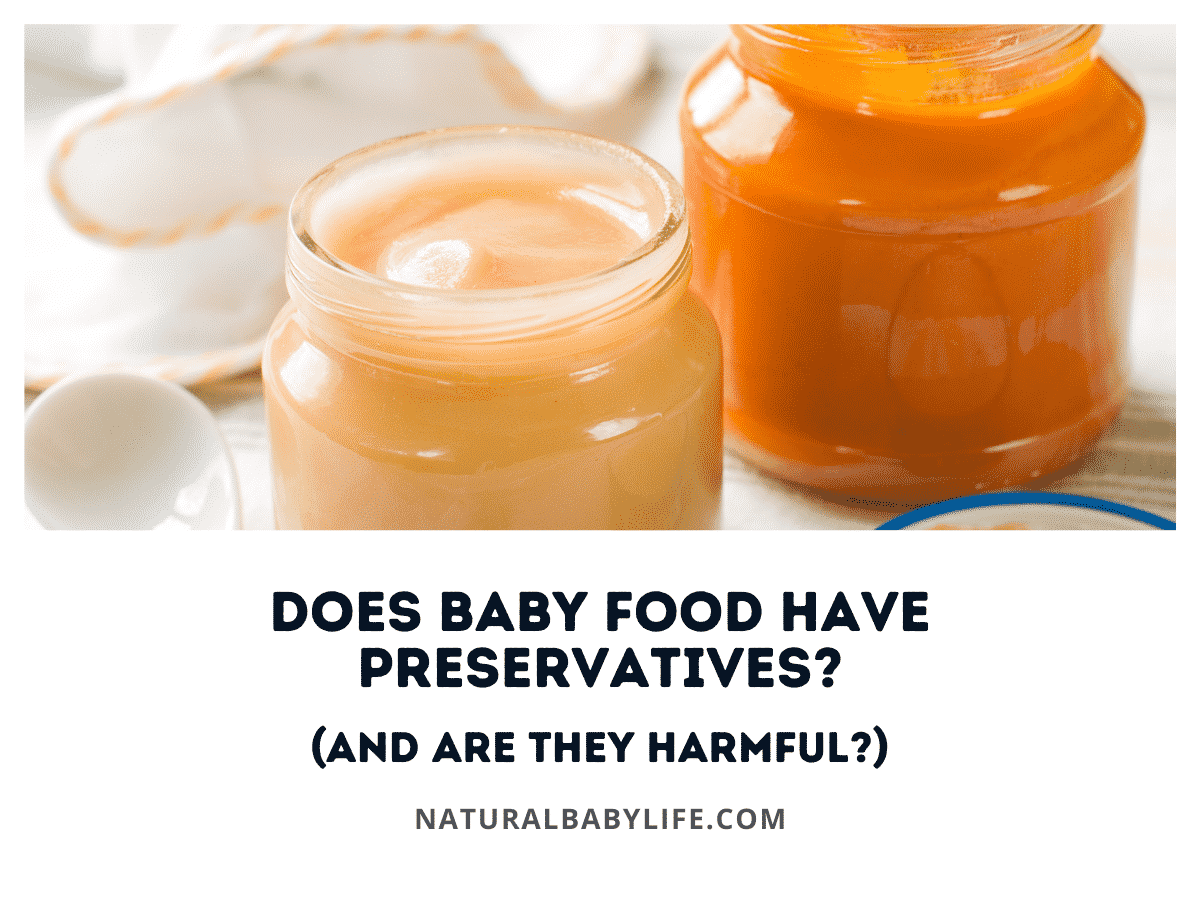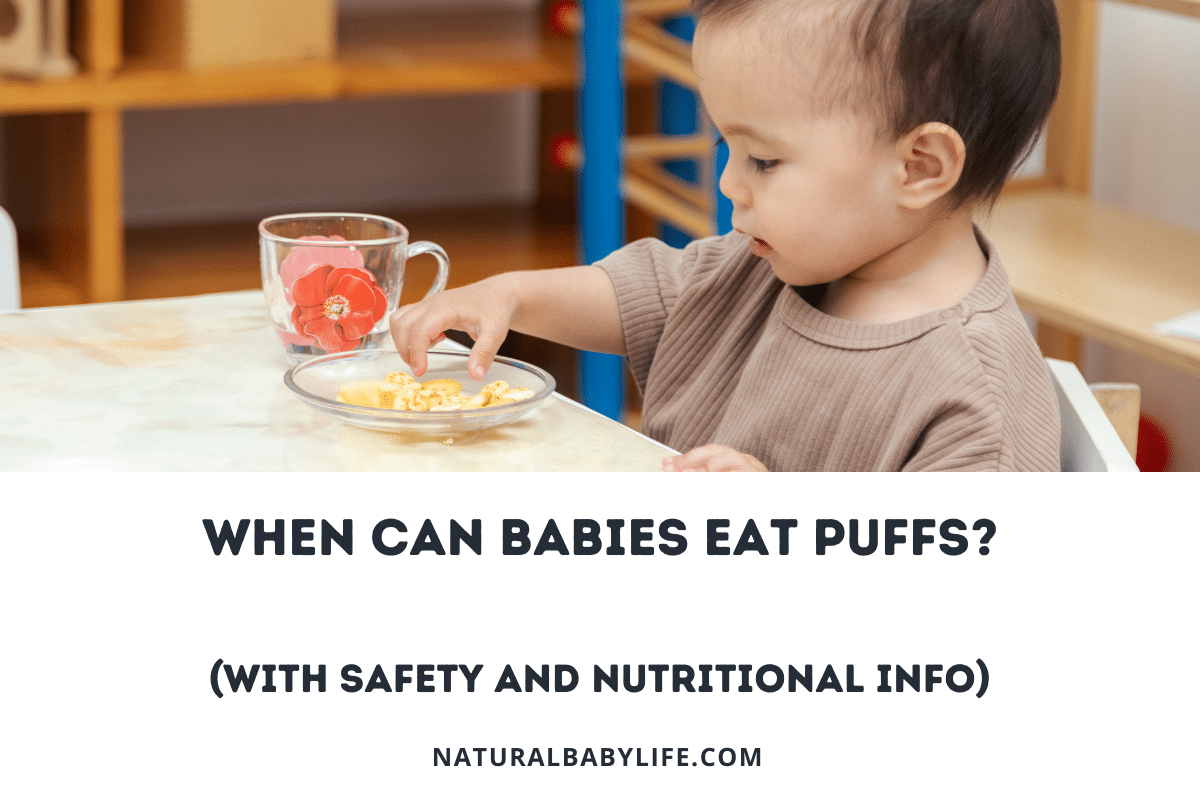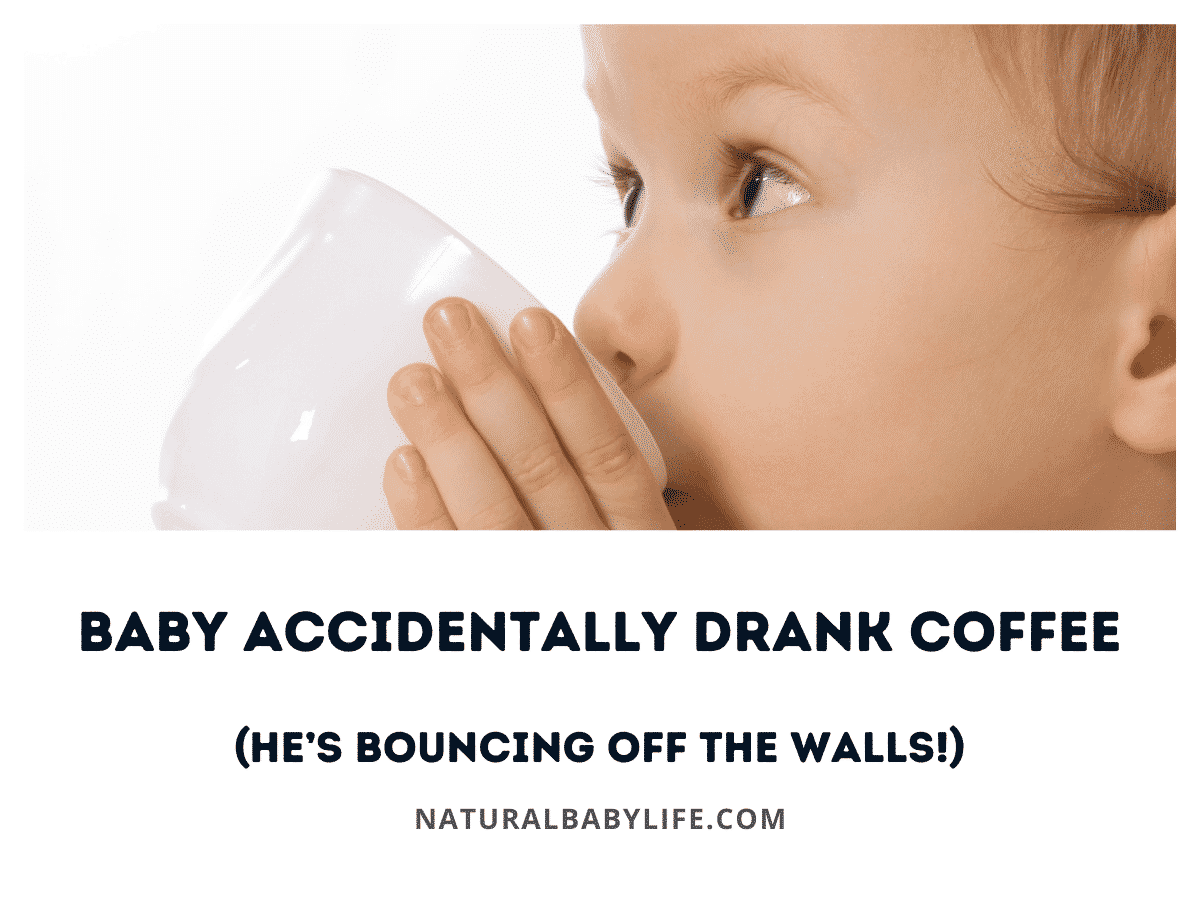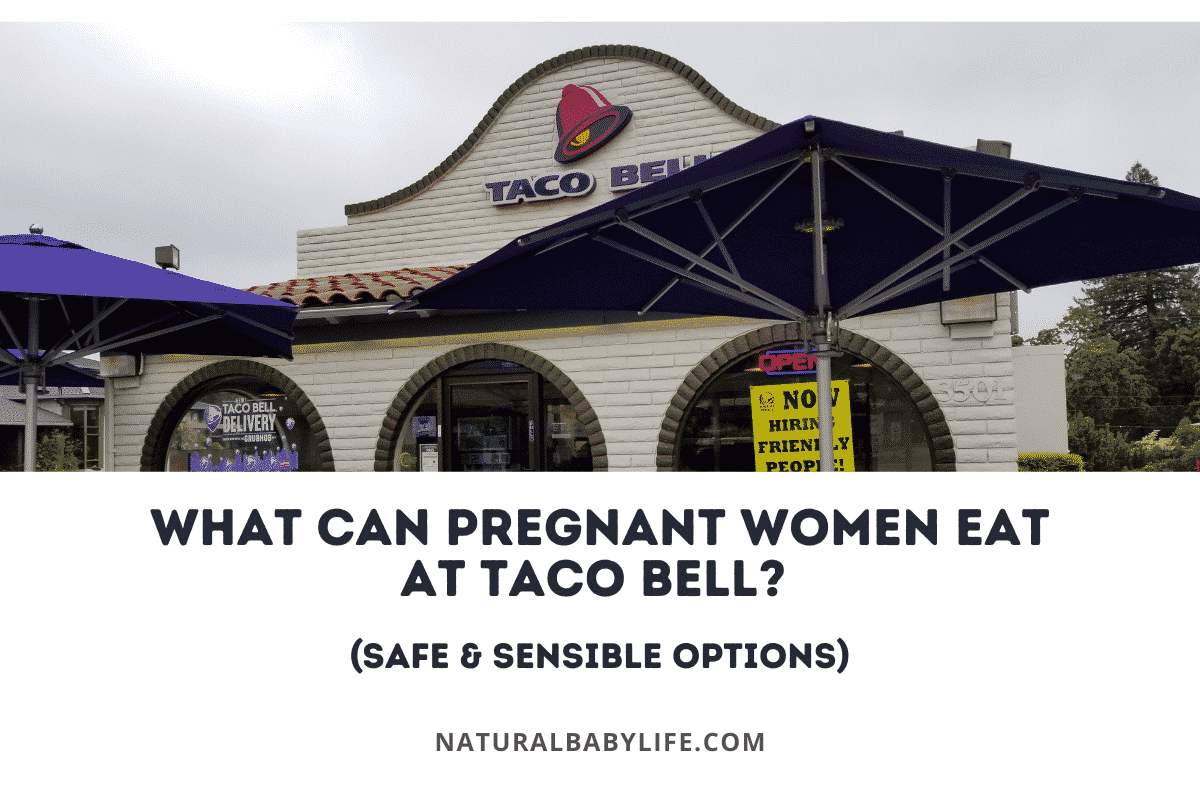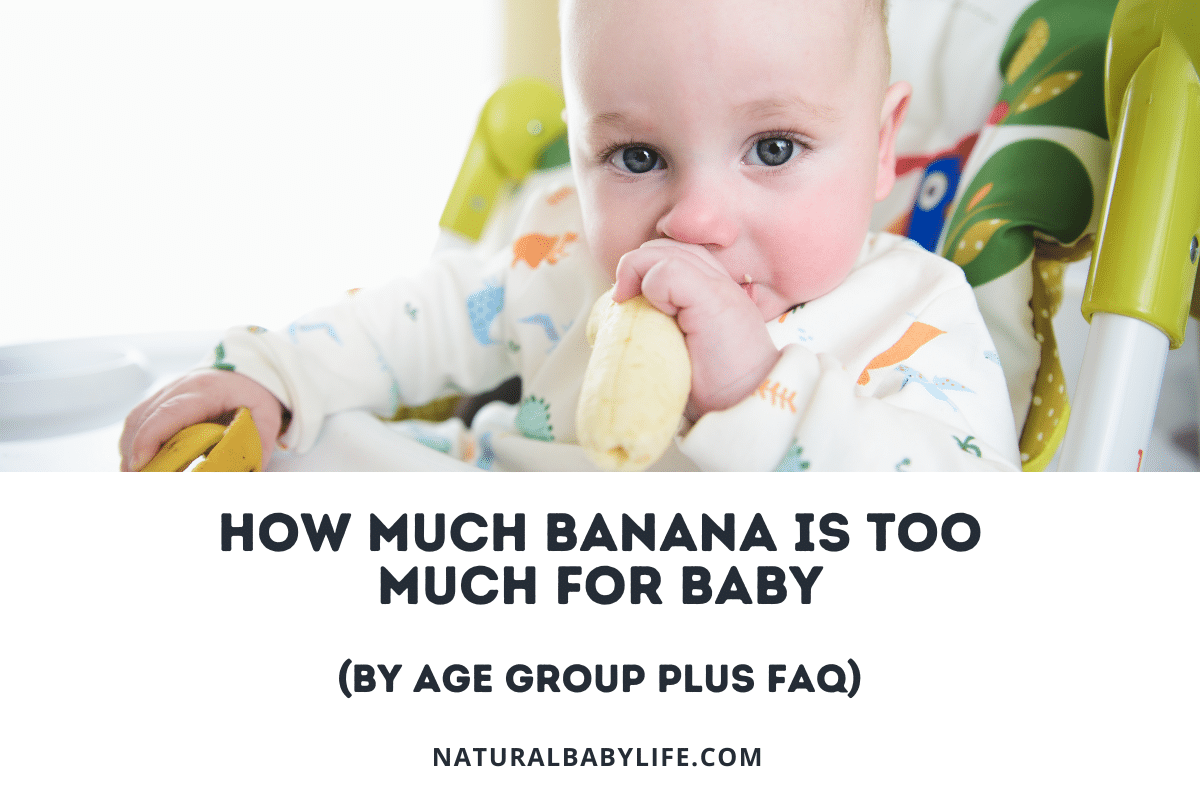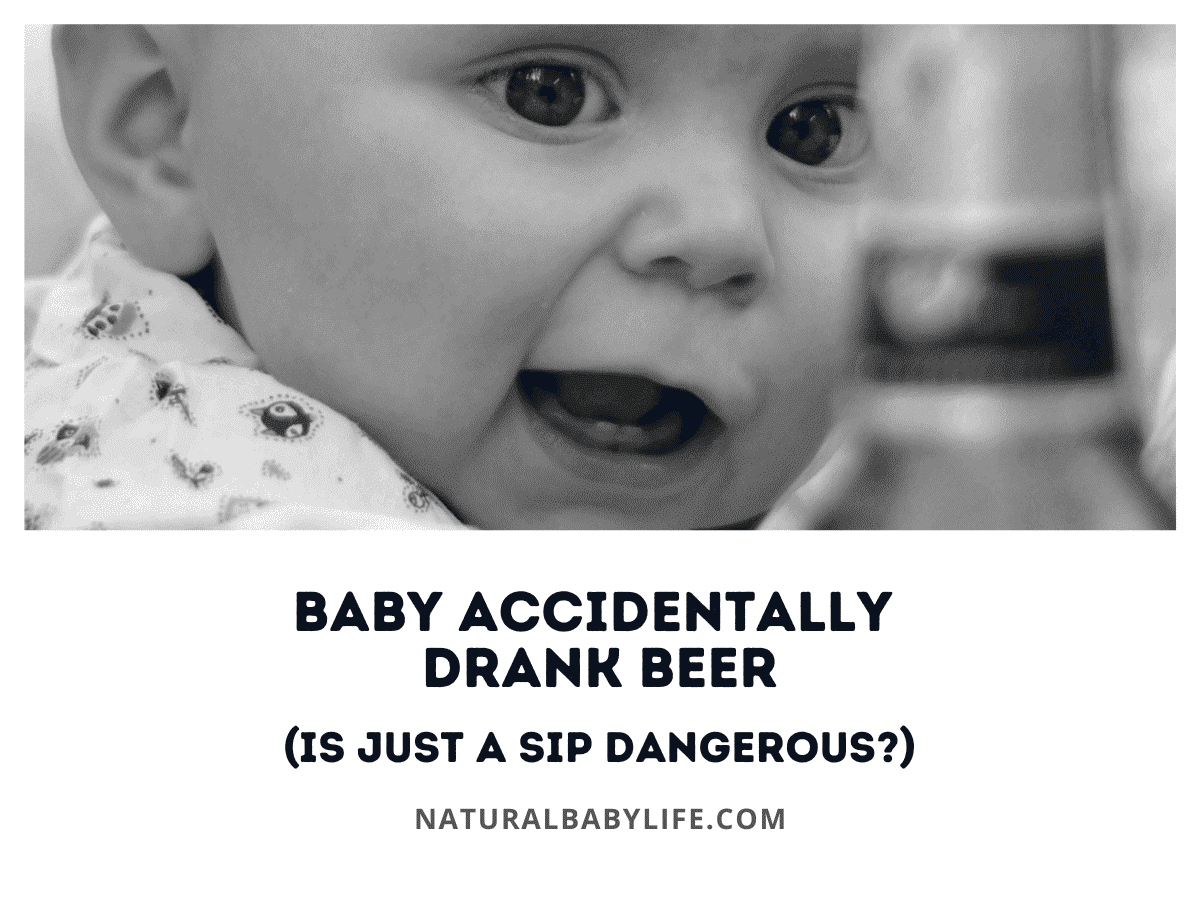Of the many things we as parents worry about, one of the most important concerns is what we’re feeding our baby. Should we be concerned about the preservatives that are used in baby food?
Most baby foods do not contain harmful preservatives, and many use natural preservatives that are completely safe in moderation and may even have health benefits. Become familiar with the preservatives that may be used and purchase certified organic baby foods to avoid pesticides and other chemicals.
Keep reading to learn about preservatives in baby food and which ones to avoid.
Table of Contents
Does all store-bought baby food have preservatives?
Although some store-bought baby foods do contain preservatives, many do not. There are also several options available from multiple baby food companies that contain natural or organic preservatives.
Most of these completely preservative-free options are simple fruit and vegetable purees. Although some fruits, such as apples and bananas, usually contain ascorbic acid or lemon juice concentrate to ensure freshness.
There has been a huge increase in the number of chemicals that have been added to our foods to help maintain freshness and give a more palatable look to foods (especially children’s food) over the last 30 years. The American Academy of Pediatrics offers some guidance as to the potentially harmful preservatives and food additives to avoid.
When purchasing healthy baby food, avoid:
- Artificial food colors
- Nitrates/Nitrites
- Bisphenols or BPA
- Phthalates
- PFC’s
- Perchlorate
While you won’t see much of any of these types of preservatives in baby food, you will more often see more natural preservatives such as Vitamin C or ascorbic acid, lemon juice, lemon juice concentrate, and citric acids. These types of preservatives are considered to be generally safe when consumed in small portions.
In fact, the National Cancer Institute says small amounts of ascorbic acid can help prevent cellular damage from free radicals, aid in fighting bacterial infections, and is useful in collagen formation.
How does baby food stay fresh without preservatives?
Now that we’ve covered what preservatives are safe in baby food, let’s take a look at how baby food stays fresh without any preservatives.
Typically most baby food jars are shelf-stable for two years and most pouches for one year. However, due to different preservation and canning methods always check the expiration dates and follow directions on the container for how to store after opening. Each baby food company that uses no preservatives has its own method for ensuring food safety and shelf stability.
The baby food company Beech-Nut states that they use a method similar to at-home canning methods to preserve their baby foods. This method combines a process called deaeration (removing air from food so there is no exposure to oxygen which will aid in decomposition) and a gentle, indirect heating method.
Another baby food company, Once Upon a Farm Organics, says their method is a little different. They take fresh produce and put it in a cold blend then cold fill into pouches. Next, they run these pouches into a water pressure chamber (no heat) ensuring that no valuable nutrients are destroyed while also ensuring that their products are shelf-stable until their expiration dates.
Does my baby’s food have preservatives?
Chances are that, yes, your baby food does have some type of preservative in it. When introducing an array of foods and textures to your baby, it’s almost inevitable that your baby food will at some point have had at least a preservative or two.
We’ve broken down most of the major baby food companies below with a summary of their practices when it comes to preservatives and also what kind of preservatives they use.
Most baby foods offer great nutritional choices for your baby, especially when sticking to the fruit and vegetable purees and pouches. Even with the items that typically contain more preservatives such as oatmeal, cereals, and snacks, you can rest assured that these preservatives are not the harmful ones.
Just like anything else, you may want your baby to consume these options in moderation which will get them a great head start on learning how to live a healthy lifestyle.
Gerber
When you think of store-bought baby food, chances are that Gerber is one of the first companies that spring to mind, and for good reason! Since its inception in 1927, Gerber has been proudly displaying the “Gerber baby” face on most of its products and packaging.
The entire Gerber organic line, along with all its fruit and vegetable baby purees, is made with non-GMO ingredients. Also, their organic line is USDA Certified Organic. While some of its products do contain preservatives, they typically consist of the “good” preservatives such as ascorbic acid, lemon juice concentrate, and citric acids.
However, these statements only apply to their baby foods and purees. The toddler pouches and snack foods do typically contain additional ingredients such as “natural flavors,” calcium carbonate, and mixed tocopherols.
Beech-nut Organics
This company uses non-GMO ingredients in its baby food. Beech-nut states they use real food and that nothing artificial is added. You will find natural preservatives like lemon juice concentrate in its purees and pouches.
You do start seeing a few more preservatives in their snack options so you may want to keep an eye out when purchasing those.
Sprout Organic
Sprout Organics affirm they only use whole foods in their products and no concentrates. Not only do they not use preservatives in their products, but they won’t accept any harvested food or ingredients with preservatives.
All of their ingredients are certified organic as well. Their oatmeal has no preservatives which is a big distinction from some other brands.
Even their snacks have much fewer ingredients than other competitors, although you will still see some natural additives like calcium carbonate.
Mama Bear Organic
Mama Bear Organics is part of a larger company called Once Upon a Farm Organics. Their mission is to bring food back to its roots, the farm. They state that “every ingredient is sustainably grown, certified USDA Organic, and non-GMO Project Verified.”
They offer a unique blend of ingredients such as coconut milk, flax seeds, and other healthy fats to make their foods more nutritionally dense.
While most of their food seems to be free from additives, you will see tara gum and sunflower lecithin listed as ingredients.
Happy Baby
Happy Family Organics source their food from organic farms and offer foods free from GMOs and other pesticides.
While most of its purees and pouches are preservative-free, you will find ascorbic acid, one type of preservative, and additives like ferrous bisglycinate (iron) listed in the ingredients of some products.
Plum Organics
Non-GMO and USDA Certified Organic ingredients are what make up Plum Organics products. They provide a helpful comprehensive ingredient glossary list with definitions on their website with all ingredients that their products contain.
They state that like all general cooking, you may see a “functional ingredient” here and there but they want you to know what it is and why it’s needed in your baby’s food. You will find some natural preservatives listed in some of their baby foods such as ascorbic acid, citric acid, and lemon juice concentrate.
Earth’s Best
Earth’s Best was the first baby food company to offer a complete line of organic products. In fact, they’ve been all organic since 1985 when the company was formed. They offer a vast array of non-GMO products. Some products do contain a few natural preservatives such as lemon juice concentrate and citric acid.

